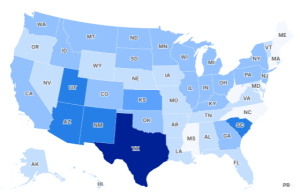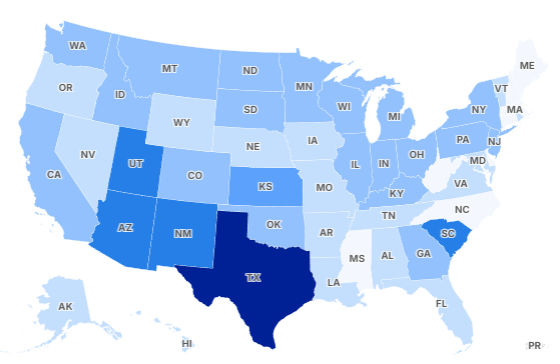Death Penalty Methods in Utah Explained as Charlie Kirk Murder Suspect Faces Capital Punishment
The shocking assassination of Charlie Kirk, 31, conservative commentator and co-founder of Turning Point USA, has triggered discussions not only about political violence and gun rights but also about the death penalty in Utah, where his accused killer now faces trial.
On September 10, 2025, Kirk was fatally shot in the neck while speaking at Utah Valley University in Orem. The single bullet, fired from a rooftop by what investigators believe was a trained sniper, ended his life before he could be transported to safety.
Authorities quickly identified and arrested 22-year-old Tyler Robinson, a Utah native. With charges expected to include aggravated murder—a capital offense in Utah—the case raises a pressing question: if convicted, how could Robinson be executed?
Utah and the Death Penalty: A Historical Overview
Utah has long stood out among U.S. states for its distinctive approach to capital punishment. While most states rely solely on lethal injection, Utah retains a unique—and controversial—alternative: the firing squad.
Capital punishment was reinstated in the U.S. in 1976 following a four-year moratorium, and Utah became the first state to carry out an execution under the restored laws when Gary Gilmore was executed by firing squad in 1977.
Since then, Utah has remained one of the few states to keep the firing squad on its books, though its use has been highly restricted.
Lethal Injection as the Primary Method
In Utah today, the mandatory method of execution is lethal injection. Introduced in 1980, lethal injection was intended as a more humane alternative to other methods of execution, including the firing squad.
The drugs typically used involve a single injection of pentobarbital, a powerful barbiturate that causes unconsciousness, respiratory arrest, and death.
However, in recent years, states including Utah have faced severe challenges in sourcing the drug. Pharmaceutical companies, particularly those based in Europe, have refused to supply chemicals for executions, citing ethical objections.
This has led to shortages and costly procurement efforts. For example, when Utah executed Taberon Honie on August 8, 2024, it cost taxpayers nearly $288,685, with $200,000 of that going solely to purchase pentobarbital.
The Firing Squad: Utah’s Controversial Backup
Utah remains the only state to have used the firing squad in modern times.
The most recent firing squad execution was Ronnie Lee Gardner in 2010. Gardner, who murdered attorney Michael Burdell in a failed courthouse escape, was executed by a team of five anonymous marksmen who fired at his chest.
While the method drew international attention, it was legally permissible because Gardner had been sentenced before changes to state law in 2004. That law stipulated that only inmates sentenced prior to May 2004 could opt for the firing squad.
Today, the firing squad exists only as a contingency method: if lethal injection drugs cannot be obtained at least 30 days before an execution date, the firing squad becomes the fallback.
The Case of Ralph Menzies
Just last week, Utah prepared to use the firing squad again for Ralph Leroy Menzies, convicted of the 1986 murder of Lucille Johnson. His execution was scheduled for September 5, 2025, making him the first inmate in over a decade set to die by firing squad.
But the execution was halted when his attorneys argued he suffered from advanced dementia and no longer understood why he was being executed—a key legal requirement.
This case highlighted both the logistical and moral complexities of Utah’s death penalty system, which could now come into play for the man accused of killing Charlie Kirk.
What This Means for Tyler Robinson
If convicted of Kirk’s murder, Tyler Robinson would face the possibility of execution. However, under Utah law, because he would be sentenced post-2004, he does not have the option to choose the firing squad.
Instead, his execution would be carried out by lethal injection—unless, as in the case of Honie and other inmates, the state fails to secure pentobarbital in time. In that rare scenario, Utah law provides for the firing squad as a backup method.
This legal framework means Robinson’s fate could depend not just on the courts but also on Utah’s ability to source lethal injection drugs.
Public Debate Rekindled
The assassination of Charlie Kirk has already sparked fierce debate nationwide, particularly given his own outspoken defense of the Second Amendment. Just last year, at a Turning Point event in Salt Lake City, Kirk made remarks that have resurfaced in the wake of his death:
“It’s worth it to have a cost of, unfortunately, some gun deaths every single year so that we can have the Second Amendment.”
Now, with his suspected assassin potentially facing the death penalty, questions about guns, justice, and morality have merged into a single, heated conversation.
Supporters argue that execution would deliver justice for Kirk’s family and deter future political violence. Critics counter that capital punishment is costly, ineffective as a deterrent, and morally inconsistent with a pro-life stance often associated with conservative values.
Conclusion
As Utah prepares to prosecute Tyler Robinson, the state once again finds itself in the national spotlight—not only because of the political implications of Charlie Kirk’s murder but also because of its unique death penalty laws.
If Robinson is convicted, the most likely outcome would be execution by lethal injection. But Utah’s long, complicated relationship with capital punishment means the possibility of a firing squad remains on the table.
For many, the method matters less than the symbolism: a young conservative leader silenced by violence, and a justice system now deciding how to respond to that act of violence with one of its own.

James Jenkins is a celebrated Pulitzer Prize-winning author whose work has reshaped the way readers think about social justice and human rights in America. Raised in Atlanta, Georgia, James grew up in a community that instilled in him both resilience and a strong sense of responsibility toward others. After studying political science and creative writing at Howard University, he worked as a journalist covering civil rights issues before dedicating himself fully to fiction. His novels are known for their sharp, empathetic portraits of marginalized communities and for weaving personal stories with broader political realities. Jenkins’s breakout novel, Shadows of Freedom, won national acclaim for its unflinching look at systemic inequality, while his more recent works explore themes of identity, resilience, and the fight for dignity in the face of oppression. Beyond his novels, James is an active public speaker, lecturing at universities and participating in nonprofit initiatives that support literacy and community empowerment. He believes that storytelling is a way to preserve history and inspire change. When not writing, James enjoys jazz music, mentoring young writers, and traveling with his family to explore cultures and stories around the world.









